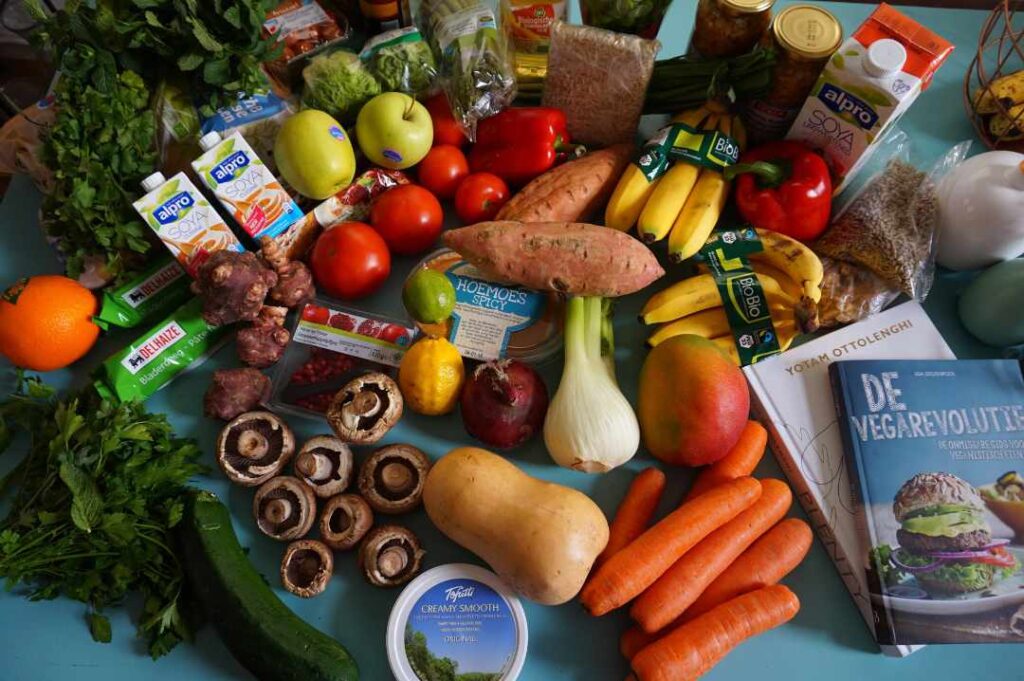
Unequivalently, YES! You CAN eat healthily and SAVE money! But isn’t it expensive to eat healthily? We are increasingly conditioned to think so with the price of ‘superfood’ options like exotic smoothies (you know, like columbian cacao smoothies from the 53rd tree on the 2nd plantation) and the comparative cost of organic food. But basic nourishment full of nutrition is well…..cheap as chips!
A win-win for your health and your pocket! Here are some tips to get you on track and bust the myth.
BUY MORE
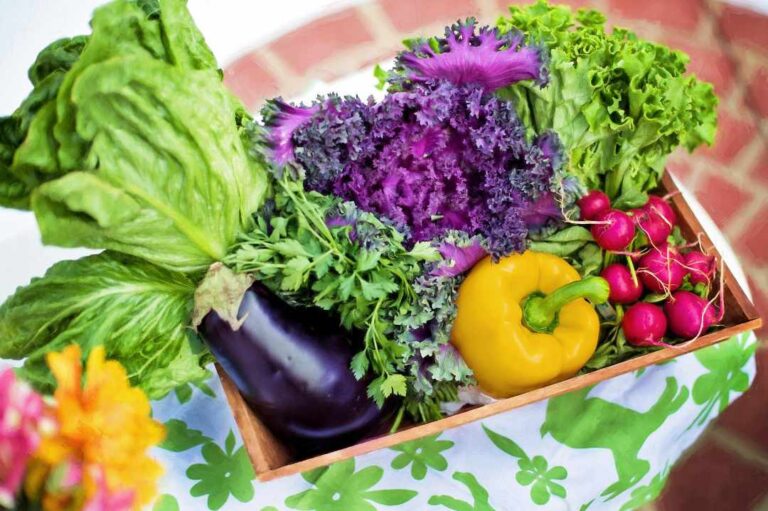
Vegetables and pulses
Meat and fish are typically the most expensive food ingredients on a shopping list, while plant protein often costs less. Pulses (beans, peas and lentils) are nutritious, cheap and work well in place of meat. They are low in calories and fat but packed with fibre, vitamins and minerals, and also count towards your 5-a-day.
Make it fun by joining the thousands of people who regularly take part in meat-free Monday.
Reducing your meat intake is also the single biggest way to reduce your impact on planet Earth. A triple win!
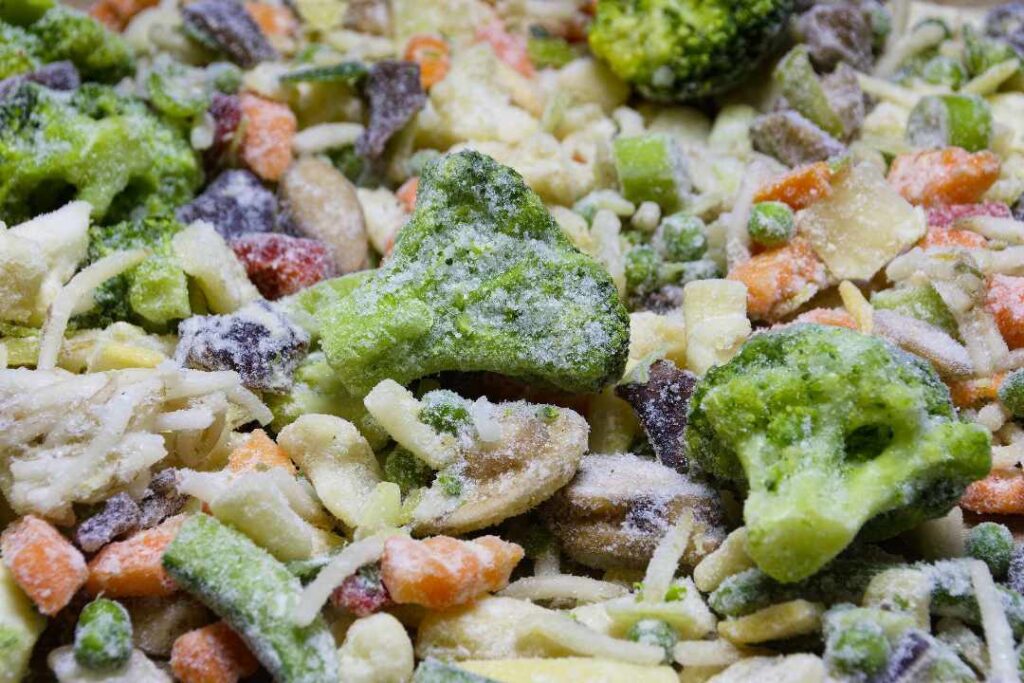
Frozen fruit and vegetables
These food staples are highly underrated. They come pre-chopped and ready to use, are just as good for you (try to avoid those with added salt, sugar or fat), and are often cheaper than fresh varieties.
Frozen vegetables are picked at the peak of freshness and then frozen to seal in their nutrients.
And they last for longer, meaning all the goodness with less food of the waste. Sounds like a winner!
Make it fun by joining the thousands of people who regularly take part in meat-free Monday.
BUY LESS
Superfoods
Don’t be fooled by expensive “superfoods”. I’d love for there to be one food that can solve it all (and perhaps enshrine me with some superpowers) but sadly this doesn’t exist. There isn’t an agreed definition for the term and most of health claims remain unproven. However, increasing the amount and variety of fruit and vegetables in your diet is shown to reduce the risk of disease and is a much more cost-effective route to better health!
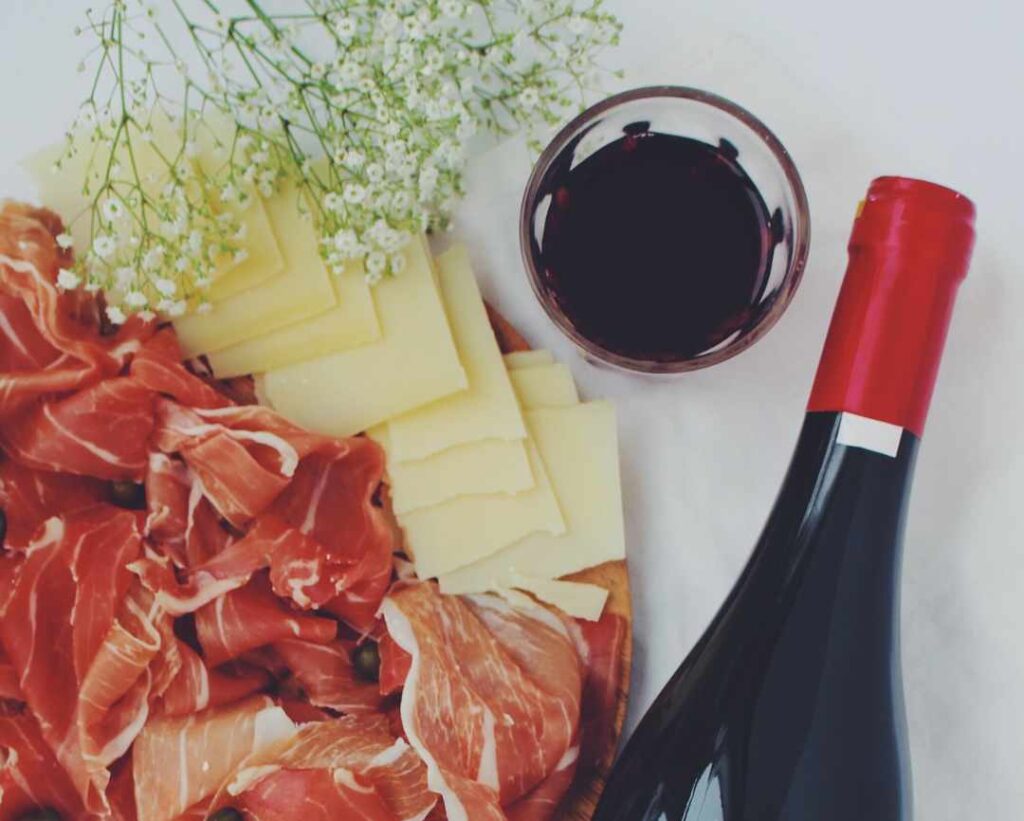
Processed foods
Avoid buying processed foods. In most cases you can create similar dishes quickly and more cheaply. A great example is ready-made pasta sauces. Instead you can try this recipe from BBC goodfood which costs around 50p for four portions (a jar of pasta sauce may cost more than four times this price. Plus, you’ll know exactly what’s in it.
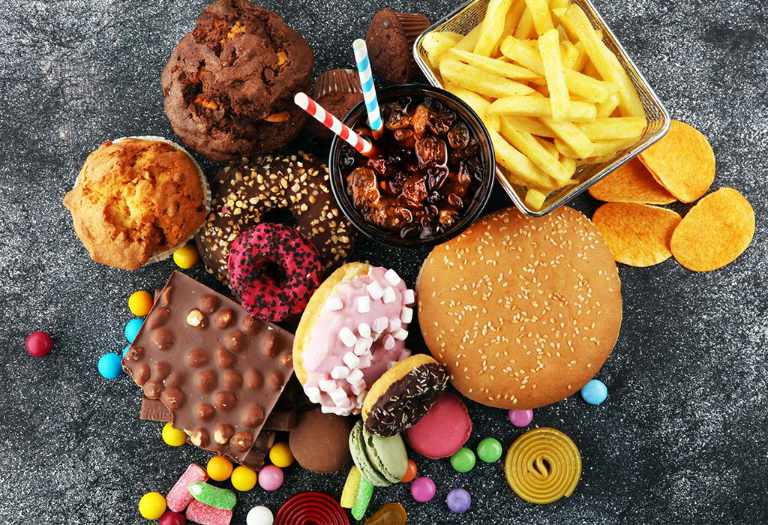
Cut down on luxuries
This includes fizzy drinks, biscuits, cakes, bars and crisps which can all be deemed non-essential (yeah, I said it!).
These will often be high in sugar, salt and fat and low in nutrition, so you’ll be doing your waistline and your bottom line a massive favour.
It may be worth thinking about healthier and cheaper alternatives, like sparkling water and fruit juice instead of fizzy drinks and fruit and plain yoghurt instead of sweet treats. Plus it’ll make the occasions when you do decide to opt for the finer things even more special!
I’d love for there to be one food that can solve it all (and perhaps enshrine me with some superpowers) but sadly this doesn’t exist.
SHOPPING TACTICALLY
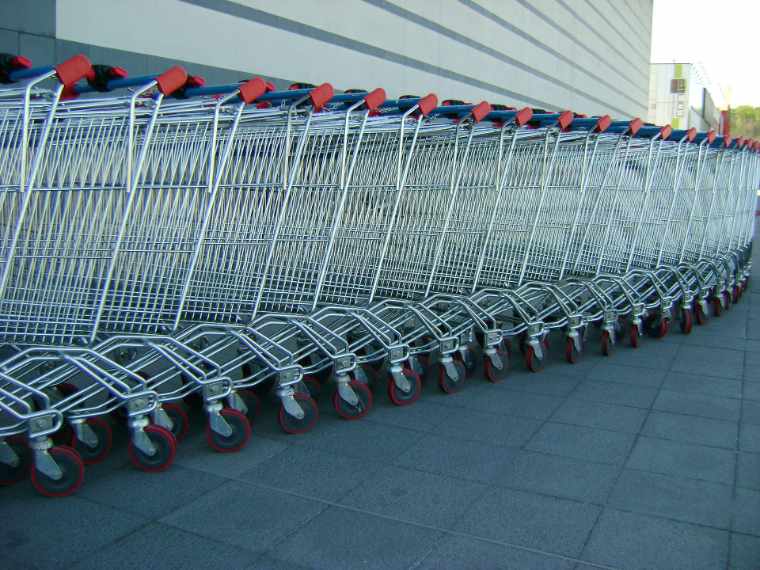
Write a shopping list
Self-explanatory but it’s worth planning ahead and thinking about the the meals you want to cook for the week. You can then make a quick stock check for the ingredients you already have and supplement any missing items on a shopping list. A great way to use what you have and not buy things you don’t need.

Try not to shop when hungry!
Firstly, it’s torture! Secondly, people who shop when hungry are more likely to spend more, especially on less healthy foods, such as high-fat and sugary snacks.
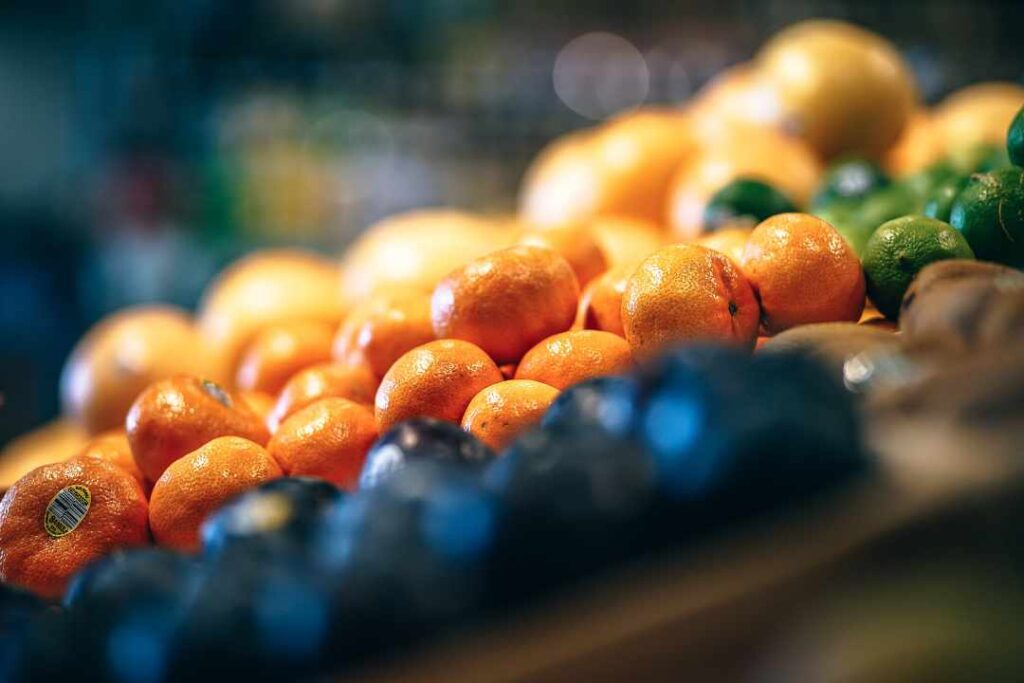
Compare pre-packed with loose
Fruit and vegetables sometimes cost more pre-packed than loose.
Check the price per weight (for example, £ per kg). Shops know that customers will probably want to buy in bulk, so they vary the offers. Sometimes it it cheaper to buy pre-packaged and other times to buy loose. So be eagle-eyed!
Also worth mentioning that pre-packed is not always the freshest, you may end up with more than you need and that it often comes with additional packaging which may not be recyclable.
Beware of BOGOF offers
Special discounts, such as buy-one-get-one-free (BOGOF) deals, can offer good value, but be careful.
Only buy items you actually need and are likely to keep and use. Tinned or frozen fruit and veg, or rice and pasta, are good examples.
Try cheaper brands
You could save money by buying cheaper brands than you normally do.
There’s not always much difference between value and premium ranges. Give it a go and let your taste buds, and not the label, be the judge.

Shop online
Search for supermarket price comparison sites that let you select a basket of products and then choose the cheapest supplier. The price differences can be significant.
Unlike going to the shops yourself, you’ll know how much you have spent before going to the till, which can make it easier to stay within budget.

Shop during 'Happy Hour'
Most supermarkets discount fresh items towards the end of the day – if you can time it right you could be quids in!
Try not to shop when hungry!
There’s not always much difference between value and premium ranges. Give it a go and let your taste buds, and not the label, be the judge.
PREPARATION
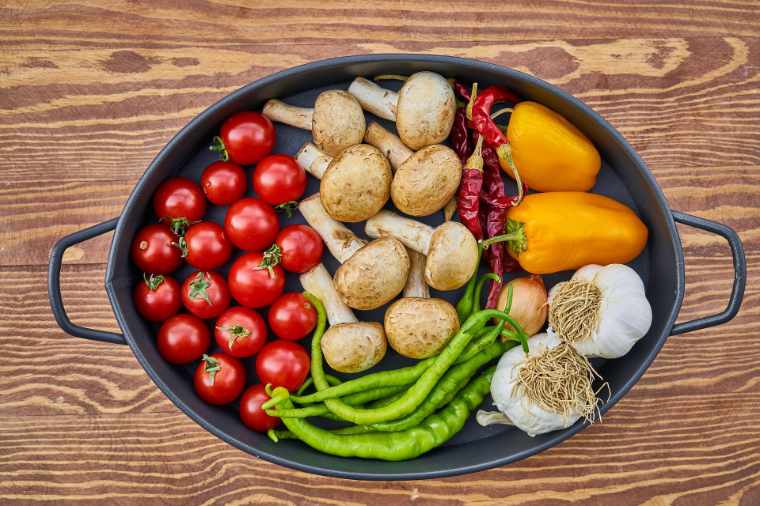
Cook from scratch
Save money by cutting back on takeaways. Preparing and cooking your own meals is almost always cheaper than buying a takeaway or a ready meal. And because it’s easier to control what goes into your dish, it can be healthier. Although, if you’re like me, brace yourself for the occasional failure alongside the culinary triumphs!
Children eat the same
Especially if you have a toddler, get them used to eating the same meals as you instead of more costly pre-prepared food. Simply blend or chop up their portion to suit their age and freeze extra child-sized portions for later
Waste nothing
The average family with children throws away almost £60 of good food every month. Be strict about buying only what you’ll actually eat (refer to shopping list).
Plan you meals
Plan your meals so all the ingredients on your list get used. Freeze any unused food. Food storage bags and boxes will come in handy.
Eat leftovers for lunch
Cook extra portions for your evening meal so you can have the leftovers for lunch the next day. There are some great recipes online for exactly this purpose! Not to mention two of my favourite meals owe their origins to using leftover food (pizza and the Mumbai classic, pau bhaji – delish!).
Freeze leftovers
Eventually, you’ll have a freezer full of homemade ready meals on tap.
Freeze bread
Bread is one of the most wasted household foods. Reduce waste by freezing when it’s freshest. Hapea tip – store bread in an airtight container (such as a freezer bag) to avoid freezer burn.
Know thy kitchen!
Know what’s in your cupboard, fridge and freezer. You may find that you actually have enough to make that special meal. Ready, steady, cook!
Look up cheap recipes
Cheap does not have to mean less tasty. There are plenty of websites offering recipes for cheap eats and youtube channels dedicated to them.
The average family with children throws away almost £60 of good food every month.

